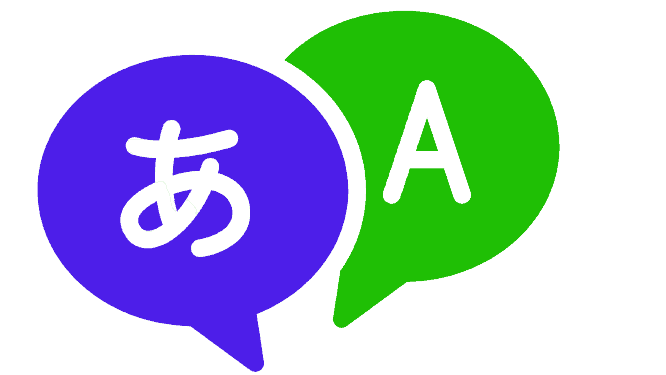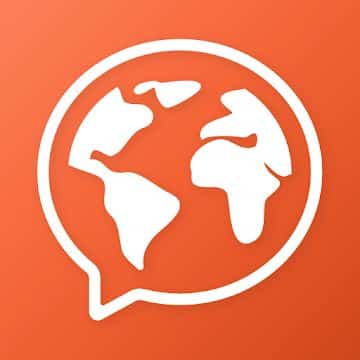Ready to explore the world of languages but unsure which path to take? Meet Mondly and Rocket Languages, two industry leaders in language learning that are competing for your attention. 🚀🌍
Which one is the secret to learning the language of your dreams? In this showdown, we’ll break it down for you without the confusion. Learn about the captivating characteristics, engaging lessons, and distinctive flair of each app.
Mondly & Rocket Languages Compared

- Number of Languages: 13
- Free Trial (or free version): Yes
- Speech Recognition: Yes
- Avg. Lesson Length: 55 Minutes
- Pricing: $99
- Money Back Guarantee: 60 Days (No Question Asked)
- Grammar Instruction: Excellent
- Live classes: No
- Progress Tracking: Yes
- Tests/Quizzes: Yes
Rocket Languages Overview
The complete language learning platform Rocket Languages is designed to accommodate students of all proficiency levels. It guarantees accessibility to a broad spectrum of learners, from beginning to experienced speakers, thanks to the great variety of languages available.
The courses are structured with a focus on in-depth understanding, covering grammar, vocabulary, and cultural nuances. It is notable for its practical approach, which incorporates real-world conversations and scenarios to facilitate practical language use. This helps students in their language acquisition as well as their ability to speak openly in everyday situations.
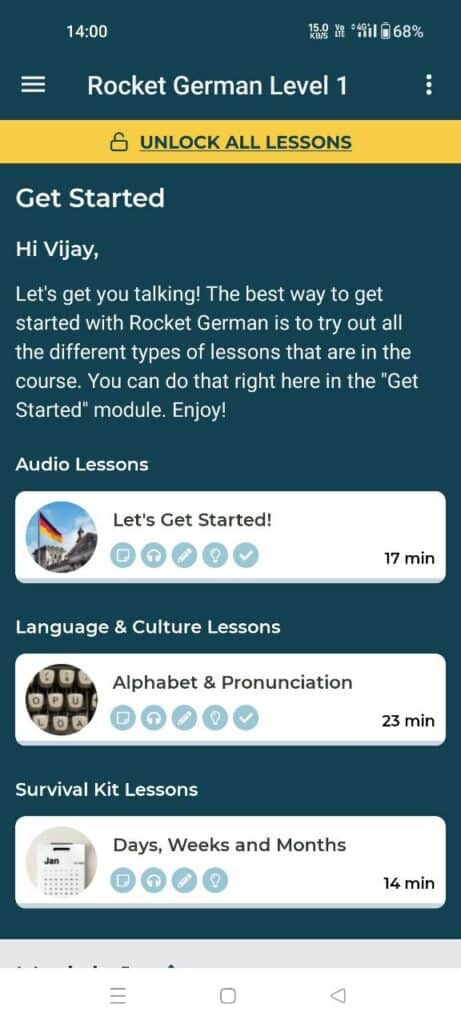
To increase engagement and retention, the platform uses an immersive teaching approach that combines audio courses, interactive activities, and role-playing. The capacity to create customized learning routes and measure progress lets students modify their course to fit their speed and objectives.
Learning on the move is possible by the user-friendly interface, which is the case with both desktop and mobile applications. Through its lively forums and language-specific communities, Rocket Languages also promotes a feeling of community by allowing users to interact, exchange experiences, and ask for help from peers and professionals.
My Rocket Languages Experience
I came across the Rocket Languages app and website in my quest to study German, and I have had nothing less than an incredible experience. I could tell I was going to have a wonderful experience learning a new language as soon as I started exploring their polished and interesting online user interface. When I decided to take the German language course, I was pleasantly surprised by the breadth and generosity of the content – even in the free trial plan.
The huge collection of lengthy German audio talks, typically lasting between 15 and 20 minutes, was one noteworthy element that instantly drew my eye. In order to improve my pronunciation, I had to listen to these conversations, repeat words, and use the app’s voice recognition technology. By immersing me in authentic conversational situations, this participatory technique dramatically improved my language abilities.
Additionally, Rocket Languages excels at emphasizing vocabulary development. The use of flashcards to reinforce my learning was a brilliant idea that provided a low-stress yet efficient way for me to retain key words and phrases. My aural understanding of spoken German was improved in the “Hear It, Say It” segment, which provided another layer of improvement. It was instructive and useful to listen, record myself, and compare the results with the original audio.
The “Write It” portion of the program proved to be a game-changer for improving my understanding of sentence patterns and written German. The “Know It” portion also gave me plenty of chances to improve my ability to translate from English to German. Every course module provides students with a comprehensive language learning experience.
My journey’s detailed quiz component was a high point. Through well constructed multiple-choice questions, I was able to gauge my development and strengthen my understanding of numerous language concepts. The other features Rocket Languages provided, such leaderboards, certificates, stored notes, and forums, were what really intrigued me. As we studied difficult vocabulary and phrases, the forum encouraged vibrant conversations and community building.
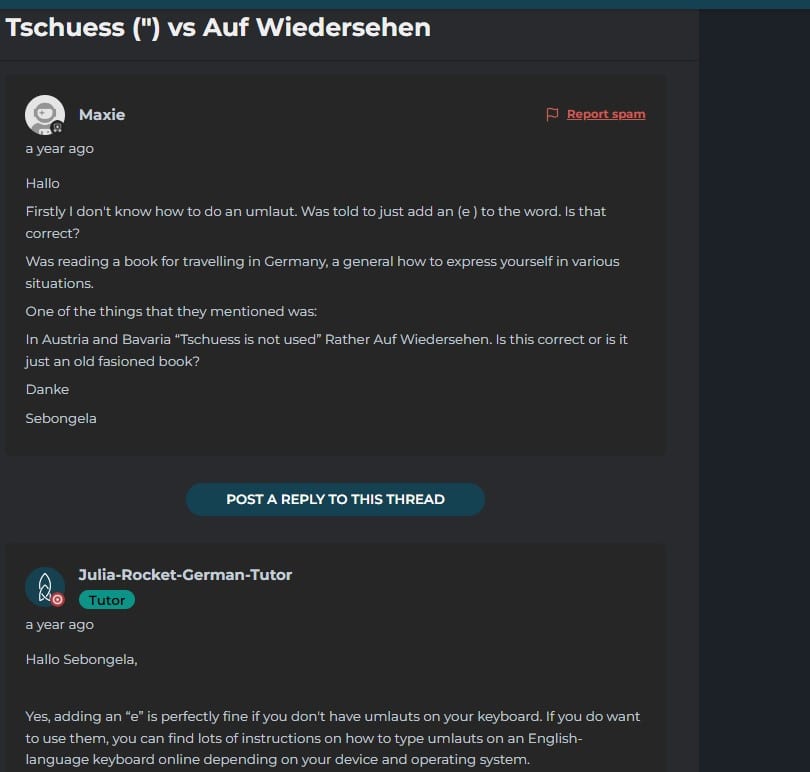
The Survival Kit classes were a revelation because they gave me the terminology I needed to survive in real-world situations. These classes equipped me with the necessary skills to successfully handle daily scenarios, from nations to colors. The sessions went beyond only teaching me the language; they also showed me how to communicate in German in public settings, such as cafés or while making reservations.
The 23 modules of Rocket German, each with eight to ten audio lessons, offered a thorough and organized learning process. The website was simple to use and much exceeded my expectations in terms of speed and convenience, making it preferable to other platforms like Mondly. Even the app kept its user-friendly vibe, guaranteeing effortless learning even on the move.
I was encouraged to continue being consistent by adding a gamification aspect by tracking my daily progress and collecting points. The certification provided a feeling of accomplishment, whilst the leaderboard promoted healthy competitiveness. To sum up, Rocket Languages has been a useful tool for language lovers like myself along my journey because of their dedication to an immersive, interesting, and comprehensive German learning experience.
Drawbacks
The Rocket Languages app and website did have a number of advantages, but I was also aware of a few shortcomings. The integration of gamification components was rather scarce, which was one major restriction. Although the leaderboard and point systems provide some motivation for participation, I found myself wishing for more interactive and game-like aspects that could enhance the learning process.
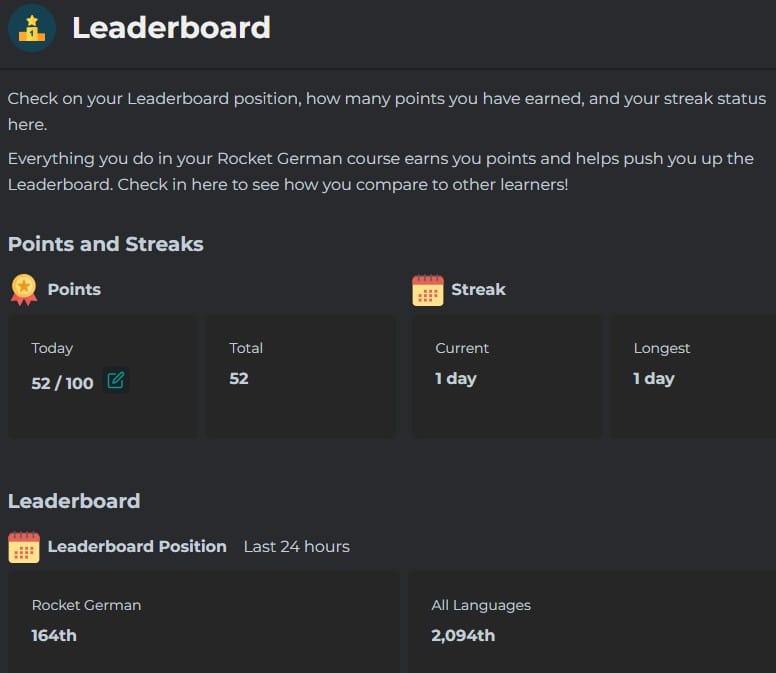
It also became clear that the platform gave audio material a high priority over other types of information. The lengthy audio chats were unquestionably helpful for aural instruction, although I sometimes longed for a more evenly distributed use of graphic components. The lack of graphics and video in all courses often made it hard for me to correlate words and phrases with real imagery, which may have improved my knowledge and memorizing.
The briefness of the quiz segment was another element that I found to be slightly lacking. Each exam only included five questions, so I often felt the need for a more thorough evaluation of my newly gained information. A greater range of question styles and a larger number of questions may have better reflected real-world language use and assessed my development.
- Comprehensive Content: Rocket Languages offers in-depth lessons that cover grammar, vocabulary, pronunciation, and cultural context, ensuring a well-rounded language learning experience.
- Cultural Insights: The platform integrates cultural context within lessons, giving learners a deeper understanding of language usage in real-life situations.
- Progress Tracking: Rocket Languages provides tools for setting goals, tracking progress, and personalizing learning paths, helping learners stay motivated and organized.
- Lifetime Access: The option for lifetime access to each level offers learners the flexibility to learn at their own pace and revisit materials whenever needed.
- Immersive Approach: The platform’s use of real-life conversations, role-playing, and scenarios helps learners immerse themselves in the language and practice practical usage.
- High-Quality Audio: Audio lessons by native speakers enhance listening skills and familiarize learners with authentic accents and intonations.
- Survival Kits: The supplementary “Survival Kits” provide essential phrases for specific situations, making it useful for travelers and individuals with specific language needs.
- Higher Cost: The upfront cost for lifetime access might be relatively higher for some learners compared to subscription-based models.
- Longer Lesson Durations: The average 55-minute lesson duration might be lengthy for those seeking shorter, more frequent study sessions.
- Limited Multiple-Language Plans: Rocket Languages doesn’t offer plans specifically tailored for learning multiple languages, which might not suit those interested in exploring diverse languages.
Mondly Overview
Mondly is a dynamic language learning platform designed to make language acquisition engaging and interactive. It has a large library of languages, giving students a wide range of alternatives.
The platform uses gamification and AI-driven technology to provide bite-sized courses and challenges that keep students interested and engaged. Speech recognition is one of its main features, allowing students to practice pronouncing words while receiving immediate feedback. The platform’s device interoperability guarantees a smooth learning experience.
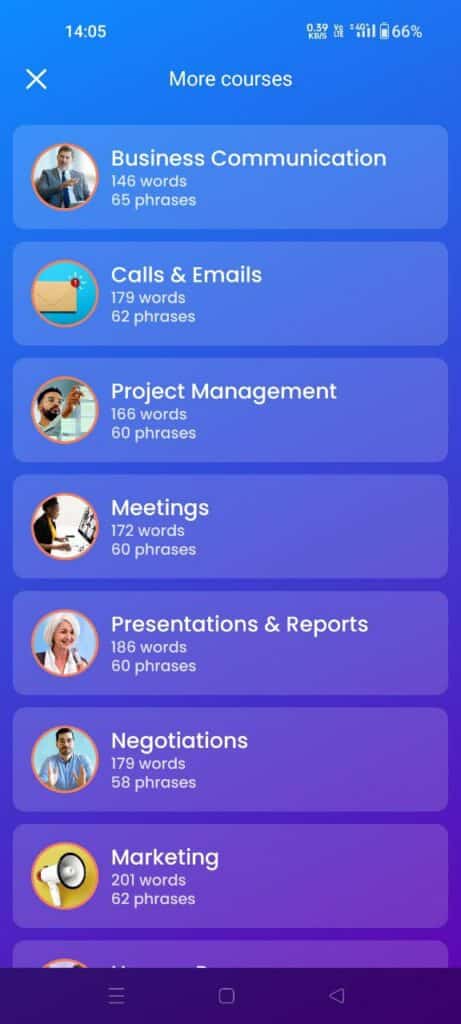
The intuitive user interface and eye-catching design of Mondly increase its use. Learning takes on a new level because to its immersive VR component, which allows students to experience linguistic situations in virtual reality.
Mondly also places a strong emphasis on community participation via language challenges, chatbot interaction, and tutoring. This enables students to use their language abilities in practical situations. It is a versatile and engaging platform for language learning, whether for beginners or advanced learners.
My Mondly Experience
The Mondly language learning website and app have been a combination of nice surprises and small difficulties for me. When I first started my journey to learn Spanish, the user interface seemed well-designed, albeit it became a little busy when I logged in. But its design appeared to be intended for newcomers like myself, giving me support and direction as I explored the platform’s capabilities.
As I dug further, I discovered a number of elements that made up Mondly’s language-learning process. My interest was piqued by the regular lectures, increased vocabulary, and chatbot integration. The concept was built around giving out bite-sized cards that summarized each instruction. These cards served as stepping stones for me as they led me through different facets of language.
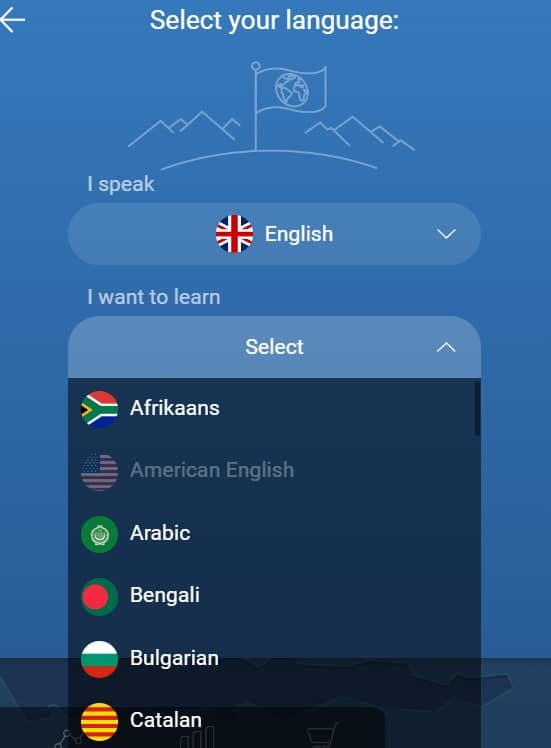
A distinctive aspect of Mondly was the daily lesson structure. I was given a lesson every day that included exercises in sentence construction and matching-type problems. The gamified method made learning interesting and promoted regular involvement.
The dedication of this platform to teach useful communication skills shone out. The software patiently taught me how to handle a variety of real-life settings, including family interactions, travel, and engaging with people on public transit or at a doctor’s office.
I was sent to a menu by clicking on any of the instructional cards, which neatly divided each card into eight separate lessons. The user-friendly design made it simple for me to delve into each subject at my own speed. I gained insight into my development from the statistics area, which displayed my total number of points and the amount of time I had spent studying.
The scoreboard, which allowed me to see how I compared to other students, was an intriguing element. This gave my language learning experience a competitive edge and motivated me to keep getting better.
I can still clearly recall choosing the public transit module when I was digging into certain modules. The first session included a thorough study of transportation-related Spanish vocabulary including “ticket,” “train,” and “taxi.” The interactive exercise of matching these terms to appropriate pictures and the opportunity to hear the Spanish pronunciation made the exercise engaging.
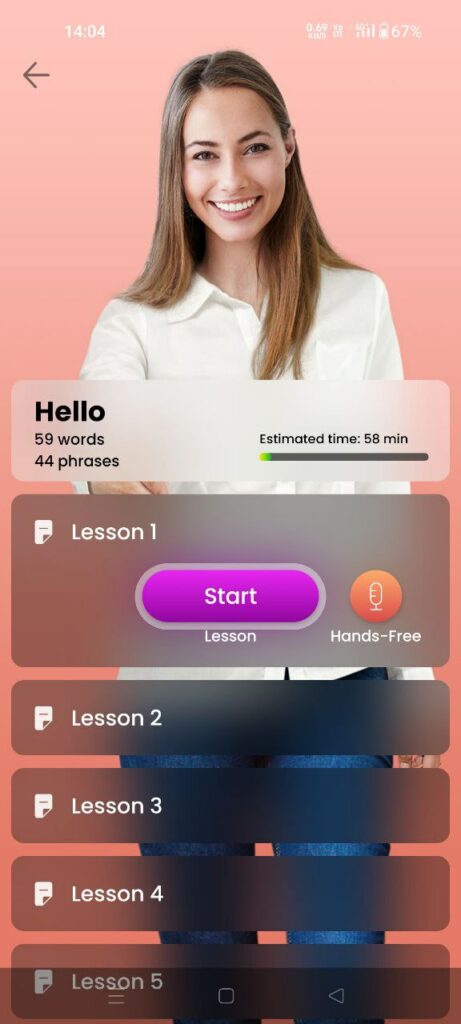
What also struck me was Mondly’s commitment to consistently growing its content repository. The site often added new courses, enhancing the educational process without charging more. Mondly stood out because to the variety of free material it offers.
The updated progress monitoring system provided a thorough breakdown of my daily practice schedule. It showed how many days I had practiced and how much time I had put in overall, fostering a feeling of success and consistency.
Notably, Mondly expanded its product line outside its website and app. They demonstrated their dedication to cutting-edge educational techniques by developing distinct applications for augmented reality (AR) and virtual reality (VR) language learning that opened opportunities to immersive language experiences.
Drawbacks
Mondly provides a great environment for learning languages, however there are a few issues that have come to my notice along the road. The user interface, although initially promising, might require some work. This was one area that stuck out.
After logging in, I saw that the UI was a little preoccupied, which sometimes made navigating difficult. However, I was aware that this layout may be geared at newcomers and provide a comforting framework as I started my language adventure.
The platform’s occasional latency in the online version was a challenge I sometimes faced. Although it was functional, the latency may interfere with how quickly I was learning. Fortunately, this didn’t materially impede my overall progress, but it did serve as a reminder that sometimes technological hitches may impede an otherwise efficient learning process.
Another aspect that I observed was the occasional simplicity of the questions presented. Even while the matching-style questions and sentence construction used in the gamified method were interesting, there were times when the questions got too simple and seemed like a piece of cake. I think a wider variety of questions might deepen the learning process and provide learners with a greater challenge.
The Mondly platform had a noteworthy flaw in that it didn’t place enough attention on grammar. Although the emphasis on practical communication skills is excellent, I yearned for a more thorough comprehension of sentence structure and linguistic conventions due to the comparatively limited coverage of grammar. The platform’s capacity to produce well-rounded language learners might be significantly improved with a more equitable incorporation of grammar sessions.
- Short, Daily Lessons: Mondly’s short and focused daily lessons make it easy to maintain consistent language learning even on busy days.
- Visual and Interactive: The platform’s visually appealing design and interactive exercises engage learners, particularly those who learn better through multimedia.
- Speech Recognition Technology: Mondly’s speech recognition provides immediate feedback on pronunciation, aiding learners in improving their spoken skills.
- Conversational Focus: With a strong emphasis on practical conversations, Mondly helps learners quickly transition to confidently engaging in real-life dialogues.
- Gamified Approach: The gamification elements, such as streaks, challenges, and rewards, make learning enjoyable and motivate learners to stay consistent.
- Wide Language Selection: Mondly offers 41 languages, making it a suitable choice for those interested in exploring various languages.
- Offline Access: The ability to download lessons for offline access is a convenient feature, allowing learners to practice anywhere, even without an internet connection.
- Limited Depth: The shorter lesson format might not offer the same depth as platforms with longer lessons, potentially leading to less comprehensive understanding.
- Subscription-Based Model: While convenient for some, the subscription-based pricing might accumulate over time and be less cost-effective for long-term learning.
- Less Immersive: Compared to some other platforms, Mondly’s approach might be perceived as less immersive in terms of in-depth cultural context and real-life scenarios.
- UI feels a little cluttered at start.
Mondly & Rocket Languages Detailed Comparison
User Interface and Experience
When I initially started using Rocket Languages, I discovered that the user interface was simple to use and browse. The dashboard has all of my activities, classes, and progress arranged well. I liked how the simple layout enabled me to concentrate on studying without being distracted.
I like how they included audio, written tasks, and cultural insights in their well-structured sessions. The engaging activities and interactive tests helped me retain what I had learned while also putting it to use.
For me, the mobile app was a game-changer. It kept the same approachable user interface and was excellent for studying while on the road. Regardless of the device I was using, the smooth progress synchronization between the app and the online version allowed me to continue where I had left off. Overall, the UI/UX of Rocket Languages produced a seamless and engaging experience that aided my quest to learn a new language.
I was amazed with Mondly’s sleek, contemporary user interface. Learning was fun since it was pleasing to the eye and had a lively atmosphere. The features, challenges, and lessons were easy to navigate.
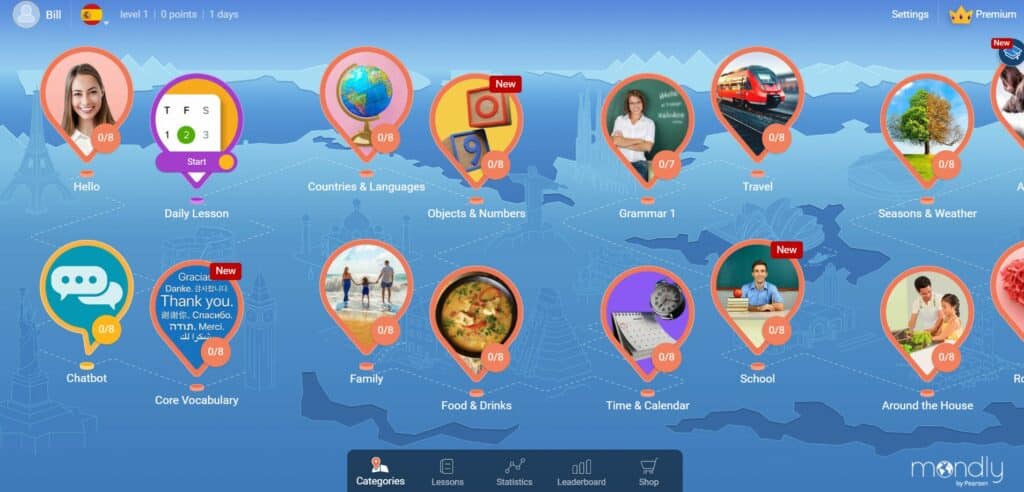
The interactive courses and daily challenges that made studying seem more like a game than a duty were examples of the gamified method. For me, the highlight feature was voice recognition. My pronunciation received immediate feedback, which made the learning process more dynamic and interesting.
I had never come across the VR component in language learning software previously. It gave the event a special dimension and let me get immersed in various situations. The program was similarly user-friendly, and I liked how well it fit into my regular study schedule. I felt more a part of the learning group because to the social components, such as language problems and chatbot conversations.
In comparing the two, both Rocket Languages and Mondly offer user-friendly interfaces that make learning enjoyable. While it’s aesthetically pleasing design and gamified elements cater to a more dynamic learning style, Rocket Languages’ clear structure fits individuals who prefer a more conventional method.
Language Course Selection
I was blown away by the range of languages Rocket Languages provided when I first looked at it. It catered to both well studied languages and lesser-known ones, with a total of 13 languages. Its inclusion of languages like Korean and Hindi alongside others like Spanish, French, and German gave students a variety of options. Each language lesson was thorough, with a big emphasis on topic depth.
I did note, however, that the typical course on this app lasted for around 55 minutes. This can be excellent for individuals who want in-depth learning sessions, but it might be a little time-consuming for someone seeking for frequent, short practice sessions. Nevertheless, each lesson’s material was well-structured and addressed a range of language-related topics, including vocabulary, grammar, and cultural considerations.
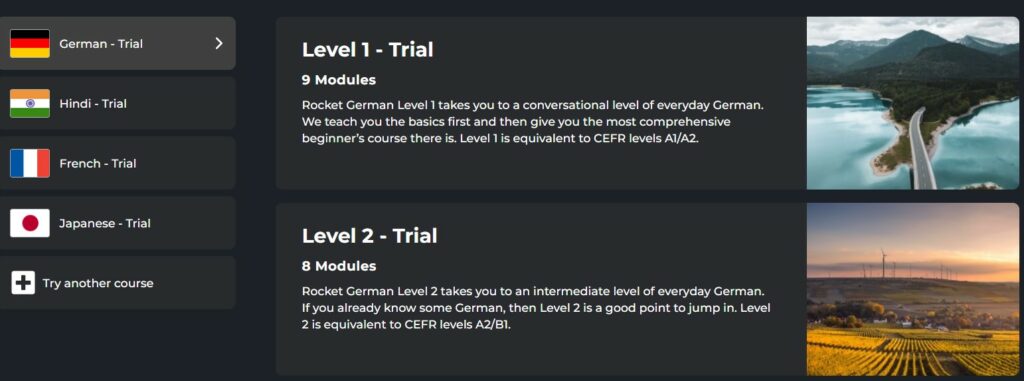
What languages does Mondly have? It’s excellent selection of 41 languages drew my interest. The sheer diversity was remarkable, ranging from more unusual choices to well learned languages. It has Afrikaans, English, French, German, Chinese, Russian, Danish, Greek, Finnish, Thai and more.
It was clear that they intended to cater to a diverse group of students and interests. I had the impression there was always a fresh linguistic adventure to go on because to this enormous language library.
Additionally, I liked that Mondly’s lessons often lasted 20 minutes, which worked well with my hectic schedule. These shorter practices helped me to maintain consistency without feeling overburdened and were ideal for everyday practice. Even though the sessions were brief, they were nevertheless powerful and packed a lot of vocabulary, grammar, and interactive tasks.
Both platforms have distinctive advantages in the area of choosing language courses. Rocket Languages provides depth in its 13 languages, making it suitable for those who want to truly dive into a language. Mondly, on the other hand, appeals to a larger audience, including those looking for reasonable daily practice, thanks to its enormous range of 41 languages and shorter session lengths. Your final decision will be based on your language learning objectives and chosen learning rate.
Learning Methods and Techniques
In my experience, immersion and real-world application are highly valued by Rocket Languages. The website invites users to interact with the language in a number of ways.
The audio courses’ inclusion was very helpful to me since it helped me develop my listening abilities and become used to regional accents. After each course, there were interactive activities and quizzes that let me review what I had learned and got immediate feedback, both of which were very helpful for my development.
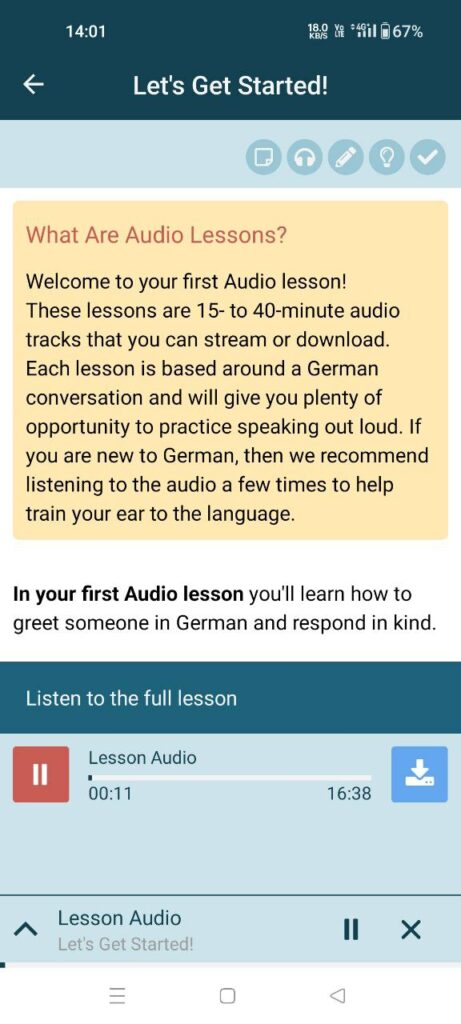
The role-playing exercises were what really caught my attention. They gave me the chance to practice actual conversations and settings, which increased my comfort level while using the language in genuine circumstances. Rocket Languages also includes cultural insights to assist me comprehend the language and its context. This all-encompassing approach fit my learning style well.
Mondly approaches language learning in a creative and engaging way. Their approach revolves around focusing on phrases rather than isolated words. Every lesson seemed like a fun challenge because to the platform’s pervasive gamification aspects.
The daily sessions were brief but dense with vocabulary and grammar, which made it simple to keep up a regular practice schedule. By using voice recognition technology, I was able to add an interesting layer and get immediate feedback on my pronunciation.
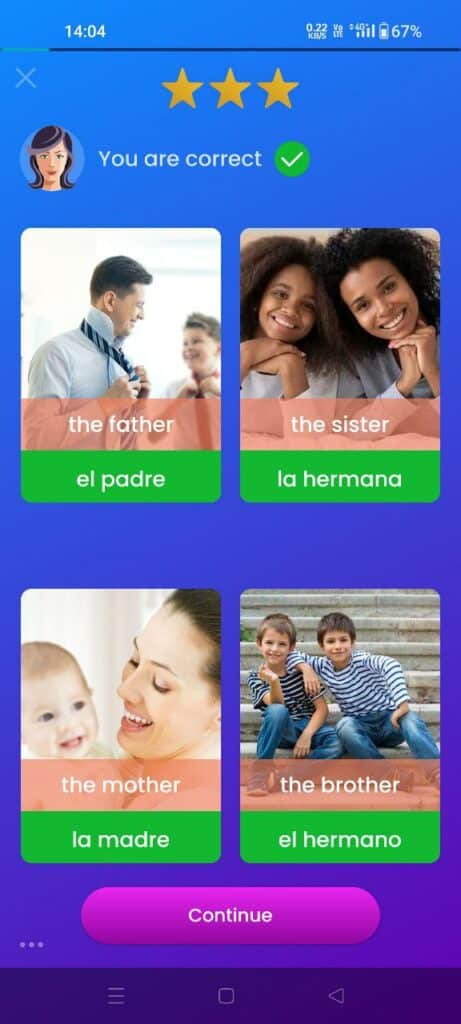
A standout feature of Mondly is its integration of native speaker audio. The platform collaborates with professional voiceover actors who provide impeccable pronunciations and authentic accents. Listening to native speakers helps learners internalize correct pronunciation, intonation, and natural cadence, contributing to effective communication and an enhanced understanding of the language’s nuances.
The VR feature is something I really liked. It improved my capacity to utilize the language in context by letting me immerse myself in a variety of linguistic contexts. Learning became easy and visually interesting because to the app’s design and aesthetically pleasing UI. A feeling of community and real-world applicability were established through the incorporation of chatbot conversations and linguistic hurdles.
Rocket Languages outperforms Mondly in terms of offering a thorough and culturally enriching learning experience, whereas Mondly stands out for its gamified approach, brief sessions, and creative use of cutting-edge technology like voice recognition and VR. Your decision between the two would mostly rely on whether you want an interactive, gamified learning experience (Mondly) or a more comprehensive, in-depth approach (Rocket Languages).
Gamification and Engagement
Rocket Languages takes a more complex approach to gamification. While the platform doesn’t use game-like components, it does use interactive exercises and quizzes to test and reinforce knowledge. This method makes the process interesting while maintaining a serious learning atmosphere.
The immersive role-playing activities in this language learning platform are what make it so engaging. Learners are placed in authentic conversational circumstances in these scenarios, which not only help them improve their language abilities but also give them more confidence. These activities’ practicality keeps students engaged since they can immediately put what they’re learning to use.
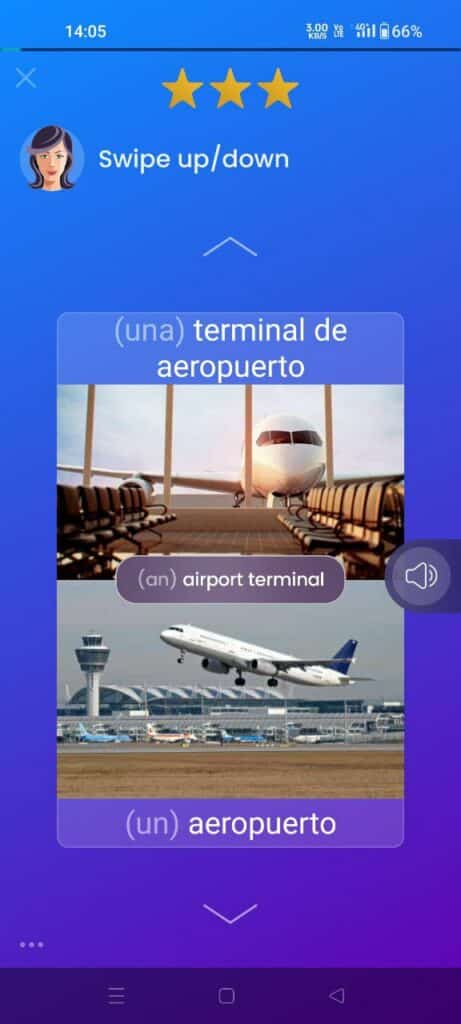
Is Mondly a good language app when we consider the gamification? Yes, Mondly takes a more overt gamified approach. The site has daily challenges, streaks, and awards such that it seems like a game. This interactive design encourages students to come often and finish their daily lectures. It is simpler to keep involved since the bite-sized courses and challenges easily fit into hectic schedules.
Mondly’s interactive courses and voice recognition technologies provide immediate feedback that motivates students to improve their pronunciation and accuracy. A very distinctive interaction factor is the VR component. It takes students into various language-related situations, giving them an immersion experience that maybe regular courses don’t provide.
Rocket Languages’ modest but successful gamification and engagement strategy appeals to learners seeking a blend of immersion and application. However, Mondly’s heavy gamification makes it ideal for competitive and reward-based people. Your choice will rely on how much you value gaming in your quest to learn a language.
Also See: Mondly vs Rosetta Stone Compared
Pronunciation Practice
Pronunciation practice is heavily emphasized in Rocket Languages’ classes. The website provides audio courses where native speakers instruct users on proper pronounciation. This helps students in developing an awareness of real accents and intonations. The interactive activities often have learners repeating words and sentences to improve their pronunciation.
One of the strengths of Rocket Languages is its focus on practical conversations. By participating in role-playing games and conversations, students gain communication skills as well as better pronunciation. Some courses’ voice recognition software offers feedback on proper pronunciation, which helps students improve their speaking abilities.
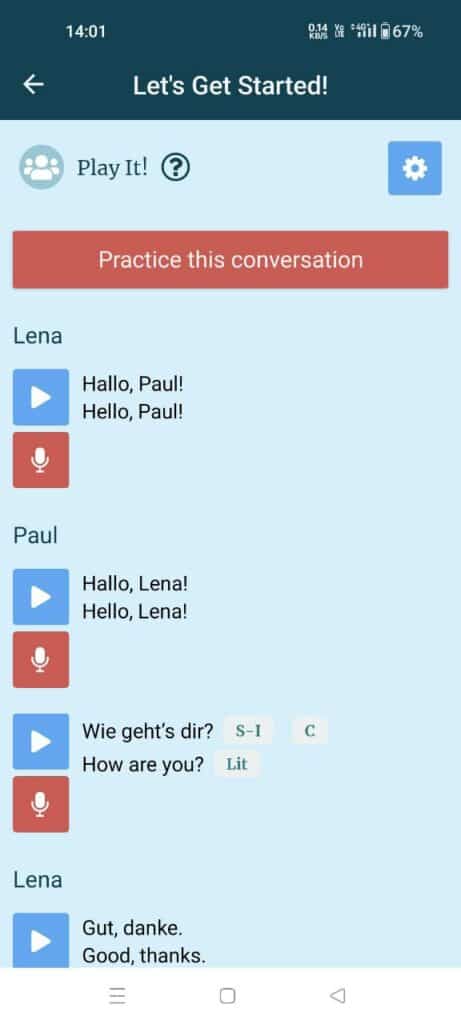
Mondly provides a thorough method for practicing pronunciation. By speaking into their smartphones and using the platform’s speech recognition technology, users can instantly get feedback on their pronunciation. An excellent tool for improving pronunciation accuracy is this real-time feedback.
Additionally, the bite-sized lessons offered by Mondly let students to focus on certain sounds and phrases, promoting concentrated practice. Speaking is often required in the interactive tasks on the program, guaranteeing consistent practice. Learners can progress from comprehending pronunciation norms to successfully putting them into practice with the aid of this useful program.
Both Rocket Languages and Mondly provide useful practice for pronouncing words, although they do it in somewhat different ways. Pronunciation drills are included in it’s realistic dialogues and situations. However, the voice recognition component provides quick feedback and promotes regular practice.
Progress Tracking and Analytics
Rocket Languages offers a robust system for progress tracking and analytics. The platform gives users a clear picture of their progress by displaying classes, activities, and quizzes that have been completed. This tool helps learners comprehend their language learning progress and start up where they left off.
It also provides tailored learning routes. Students have the ability to create objectives and monitor their progress in accomplishing them. Analytics on the site help learners concentrate on particular language skills by revealing areas that require more practice.
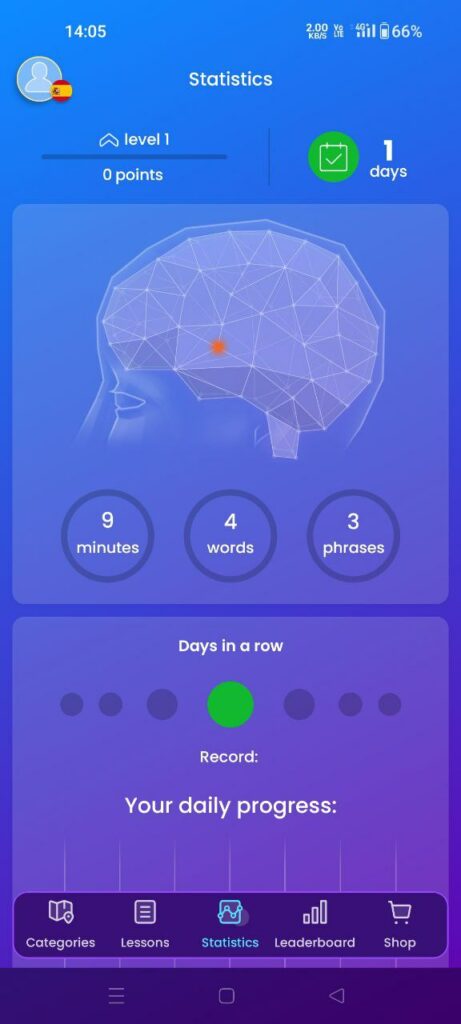
Mondly also excels in analytics and progress tracking. Learners can view their completed courses, streaks, and accomplishments on the platform’s dashboard. The gamification component provides a motivational component, enticing people to continue studying on a regular basis.
The app’s daily challenges and tests help in measuring development by routinely evaluating students’ comprehension and recall. The app’s adaptive learning engine optimizes courses depending on students’ strengths and shortcomings.
When compared, Rocket Languages and Mondly both provide efficient analytics and progress monitoring. With an emphasis on individualized learning routes, Rocket Languages enables students to establish objectives and keep track of their progress. However, Mondly makes use of gamification and adaptive learning technologies to show learners where they stand and promote daily engagement.
Mobile App Features
The mobile application from Rocket Languages serves as a seamless addition to its online platform. From their smartphones or tablets, students can view their classes, progress, and activities. The app has a number of noteworthy features, like:
- Offline use: Students can download lessons and resources from the app for offline use. This is very helpful for training when offline and without an internet connection.
- Interactive Lessons: The app provides access to the interactive exercises, tests, and lessons that are available on the online platform. This guarantees a uniform learning environment across all platforms.
- Work Sync: The app easily syncs with the online platform, enabling students to pick up where they left off on their desktop or laptop and continue their work there.
- Voice Recognition: Learners can utilize the app to practice their pronunciation in languages where voice recognition is supported. Speaking abilities are improved by this function.
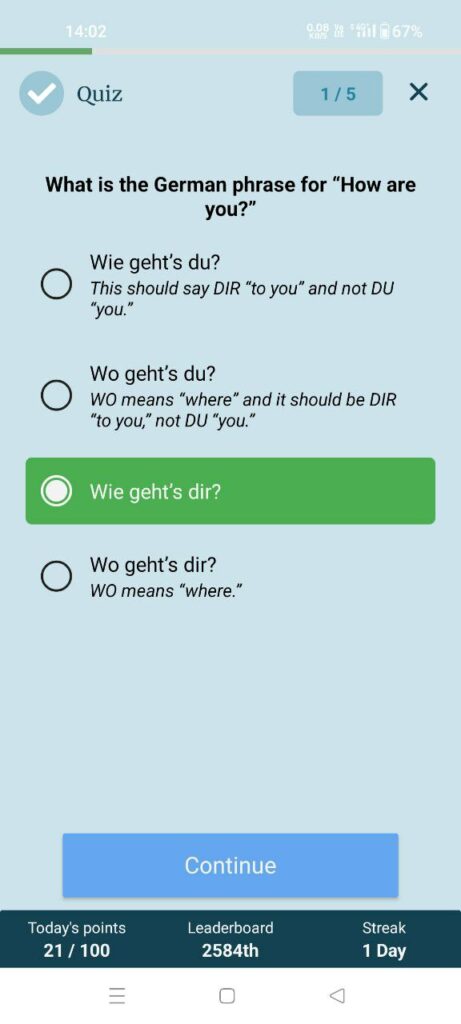
Mondly’s mobile app is designed with an engaging and interactive interface, aligning with its gamified approach to language learning. The app’s main features are as follows:
- Daily Lessons: To fit into users’ schedules, the app provides quick, daily lessons. Vocabulary, grammar, and practical conversational skills are the main topics of the classes.
- The app features Mondly’s voice recognition technology, which enables students to practice pronouncing words and get rapid feedback.
- VR lessons: The app’s VR component immerses students in simulated language situations, making for an interesting and fun learning environment. You have to download separate Mondly’s VR app for this.
- Leaderboards and Streaks: Gamified components like leaderboards and streaks motivate students to finish classes on time and compete with one another.
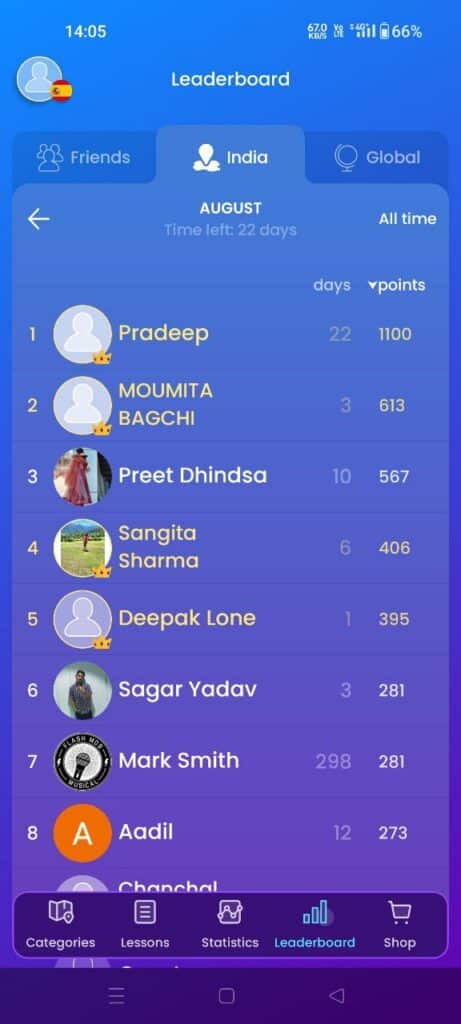
When comparing the mobile app features, it can be seen that Mondly and Rocket Languages both provide easy access to language study resources via their applications. This offers an offline version of its online platform so that users may switch between devices seamlessly. On the other hand, Mondly’s app integrates downloadable course modules, gamification and VR, making it an appealing option for students who value a fun and dynamic learning environment.
Vocabulary Building Tools
With Rocket Languages, vocabulary development is handled in depth. Vocabulary is presented in its courses in context, often incorporated into events and dialogues from everyday life. This enables students to fully understand how words are employed in everyday speech. In addition, the platform offers:
- Flashcards: Rocket Languages includes interactive flashcards to help reinforce vocabulary. For reviewing and recalling words and phrases, these flashcards are a helpful learning resource.
- Games for Learning Vocabulary: The platform provides fun games for learning new words. These games increase retention and make learning new terms more fun.
- Audio Pronunciation: Hearing native speakers pronounce vocabulary words assists learners not only with pronunciation, but also with comprehending correct intonation and accents.
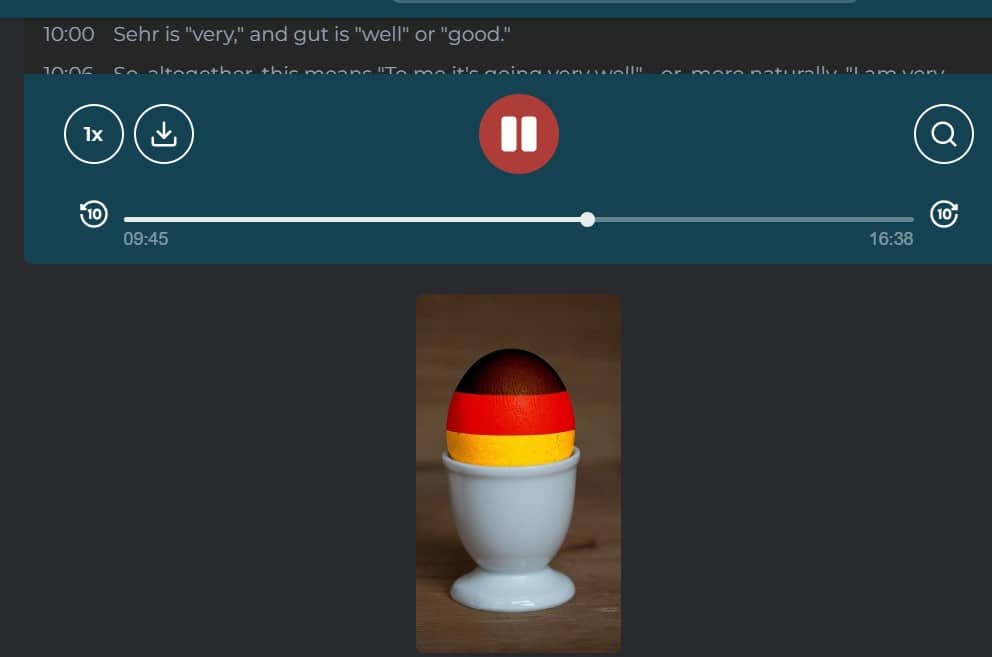
The instruments for building vocabulary on Mondly are designed to be engaging and effective. The language learning platform uses gamification to make vocabulary learning fun. These qualities are listed:
- Daily Lessons: Mondly’s daily lessons deliver new vocabulary in manageable quantities, facilitating learners’ long-term retention of terms.
- Vocabulary Review: The app’s quizzes and challenges incorporate previously learned vocabulary, reinforcing words in various contexts to enhance memory.
- Real-world Simulations: It allows you to practice languages in VR. The VR portion provides situations where students can use newly learned vocabulary in real-world settings, assisting students in internalizing words via usage.
- Cross-Platform Synchronization: Words learnt on one device are synchronized with other platforms so that students can use and review their vocabulary consistently.
When comparing the vocabulary-building programs, Rocket Languages and Mondly both provide useful strategies. With an emphasis on incorporating terminology into discussions, it offers a comprehensive grasp of word usage. With its daily lessons and gamified approach, Mondly makes learning new words fun and doable.
Offline Learning Options
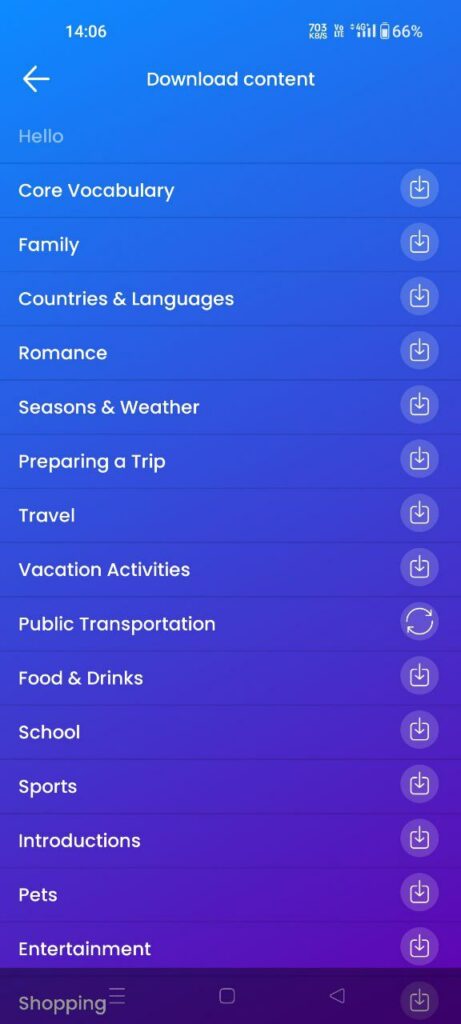
Through its mobile app, Rocket Languages provides the benefit of offline study. The software enables students to download courses, audio recordings, and other resources for offline usage.
Those who regularly travel or have spotty internet connectivity would particularly appreciate this feature. After downloading the material, students can engage with it even when there is no active internet connection. As a result, language learners could practice and study continuously, independent of their location or connection.
Through its mobile app, Mondly also provides offline learning choices. To continue studying without a network connection, students can save classes and information to their devices.
Comparing the offline learning options, both Rocket Languages and Mondly provide mobile apps that allow learners to download lessons for offline use. Regardless of network issues, this function is very helpful for constant and uninterrupted learning.
Personalized Learning and Adaptive Algorithms
Learners can develop individualized learning pathways using Rocket Languages based on their objectives and interests. The platform allows users to set goals, whether it’s conversational proficiency, travel needs, or specific language skills. Based on these objectives, classes and activities are tailored to concentrate on the most important parts of language acquisition.
Rocket Languages monitors student progress and modifies the instructional materials as necessary. If a student succeeds in certain subjects, the platform may raise the bar or concentrate on more complex subjects.
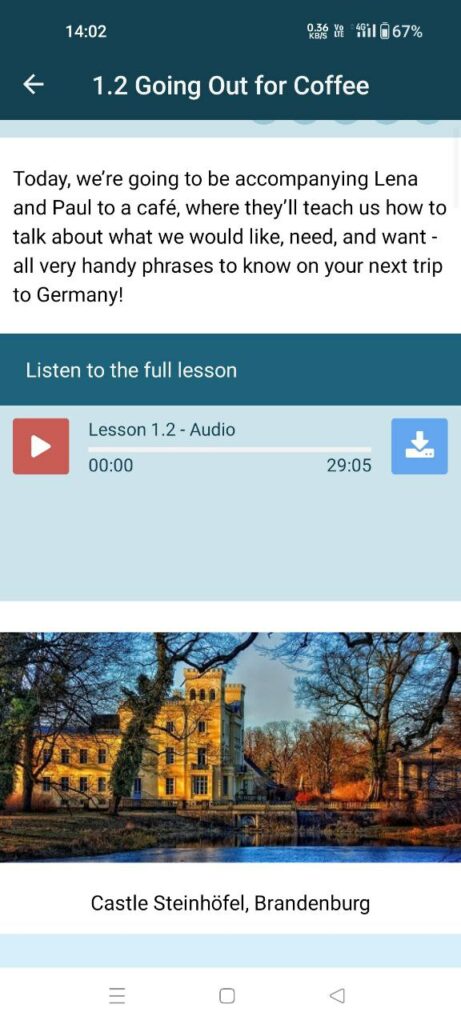
The platform enables students to go back and review content from earlier classes, which helps them comprehend and remember grammar and vocabulary.
Based on the performance of the learners, Mondly uses adaptive algorithms to tailor the learning experience. The technology of the app assesses a learner’s strengths and areas for development. Following classes are then customized based on this information to meet each student’s unique learning requirements. Personalized learning from Mondly includes the following features:
- Adaptive Lessons: Mondly’s lessons adapt to learners’ proficiency levels, focusing more on challenging areas and reinforcing weaker ones.
- Feedback from voice recognition: The app’s speech recognition technology corrects mispronunciations and makes suggestions for improvement while taking into account the speaking talents of each student.
- Review and Reinforcement: To maximize long-term memory, Mondly’s adaptive method makes sure that students review and apply language and ideas that might require repetition.
When comparing customized learning and adaptable algorithms, Rocket Languages and Mondly both provide ways to modify the learning process to the demands of each user. While Mondly’s method modifies the material in real-time depending on learners’ performance, Rocket Languages’ customisation is more concerned with goal-setting and progress monitoring. Your selection would depend on whether you choose a dynamic, performance-based adaptation (Mondly) or a goal-oriented customisation (Rocket Languages).
Translations
Rocket Languages approaches translations with objectivity. The platform promotes immersive learning via its audio lectures and real-world dialogues, but it also understands that good comprehension depends on being able to interpret translations. The translation strategy used by the app has a few characteristics.
- Contextual translations: Sentences and conversations are often translated within their context. This enables students to figure out the meaning of words and phrases in context.
- Vocabulary Breakdown: Translations are complemented by explanations that go beyond simple translations to assist learners comprehend the subtleties and use of terms.
- Focus on Cultural Understanding: By incorporating cultural insights, Rocket Languages helps learners understand how language is utilized within a particular cultural context.
Translations are a key component of Mondly’s learning strategy. The application offers immediate translations for vocabulary and phrases in an effort to make language learning more approachable, particularly for beginners. The translation strategy used by Mondly includes several elements like:
- Direct Translations: To help learners comprehend the meaning of words and phrases, Mondly provides direct translations of vocabulary and sentences.
- Immediate Comprehension: Direct translations enable students to rapidly comprehend the essential ideas of a phrase, enabling them to move through classes with a firm understanding of the subject matter.
- Gradual Transition: Mondly provides progressively complicated phrases and sentences as learners develop, forcing them to depend more heavily on context and linguistic knowledge.
Pricing
| Plan | Rocket Languages | Mondly |
|---|---|---|
| Level 1 | $99.95 (Lifetime Access, 1 language) | $9.99 (1 month, 1 language) |
| Level 1 & 2 | $249.90 (Lifetime Access, 1 language) | $47.99 (12 months, 1 language) |
| Level 1, 2 & 3 | $259.90 (Lifetime Access, 1 language) | $89.99 (Lifetime, 41 languages) |
| EMI | $47.00/Mo for 6 Months | N/A |
Both Rocket Languages and Mondly provide flexible pricing plans to accommodate a range of tastes and price ranges.
At every level, it offers lifelong access, making it a one-time payment for the selected language. Even while the initial cost may be greater, you could see a large long-term return on investment, particularly if you’re devoted to learning the language over a prolonged period of time. The ability to stretch out the expense is also made more reasonable for students via EMI choices.
Rocket Languages stands behind the effectiveness of its program with a 60-day guarantee. This commitment to learners’ satisfaction underscores the confidence the platform has in its methodology and resources.
On the other side, Mondly provides additional flexibility with choices for monthly, yearly, and lifetime subscriptions. This is advantageous for people who want to learn a language without making an immediate financial commitment. For people who are interested in learning many languages, the lifetime access option for 41 languages is quite valuable.
In terms of affordability, both platforms cater to different budgets and learning goals. Is Rocket Languages worth it? For people who want to devote a lot of time to learning one language, a one-time investment in Rocket Languages could be reasonable. For learners who wish to study other languages without paying a large upfront commitment, Mondly’s subscription options are appropriate.
What are the key differences between these apps?
Let’s see the key differences between Mondly and Rocket Languages. The emphasis on cultural context in Rocket Languages is one noteworthy feature. As a result, users of the platform have a broader grasp of how language is utilized in various cultural situations. The site also incorporates cultural insights and real-world events into its courses. This not only improves language understanding but also provides a wider view of the language’s actual use in daily life.
For certain languages, Rocket Languages furthermore offers a component referred to as “Survival Kits.” For circumstances like travel, work, or social contacts, these packages offer key terminology and phrases. People who are wishing to swiftly pick up valuable language skills for certain objectives, this tool could prove of great assistance.
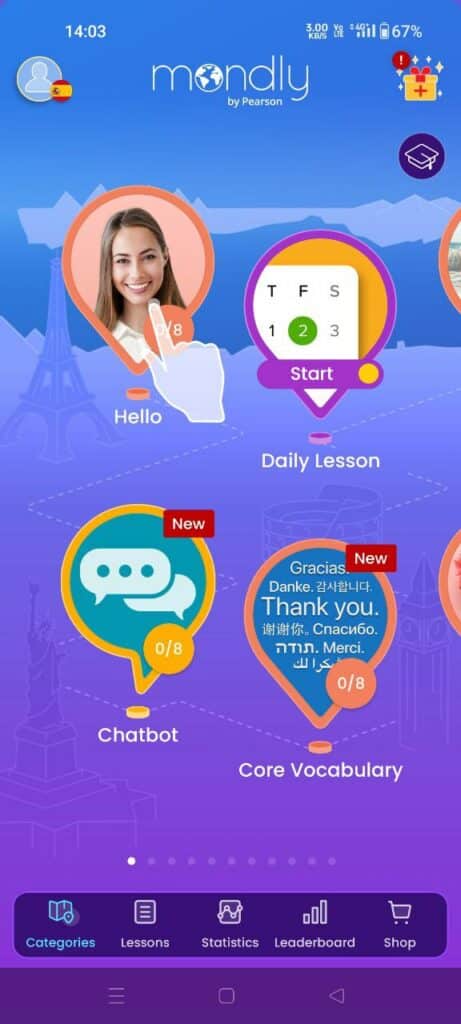
The “Daily Lessons” methodology of Mondly sets it apart. It satisfies the needs of time-constrained people looking for an easy method to fit language learning into their everyday routines by providing quick, concentrated courses that can often be finished in under five minutes. Even on their busiest days, students can achieve steady progress.
Additionally, Mondly emphasizes conversational skill development strongly. Lessons on the site often focus on regular discussions to provide users useful language skills for communication. This emphasis on communication may aid students in making the swift transition from learning grammar and vocabulary to participating in conversations with confidence in everyday situations.
Rocket languages is best for whom & how?
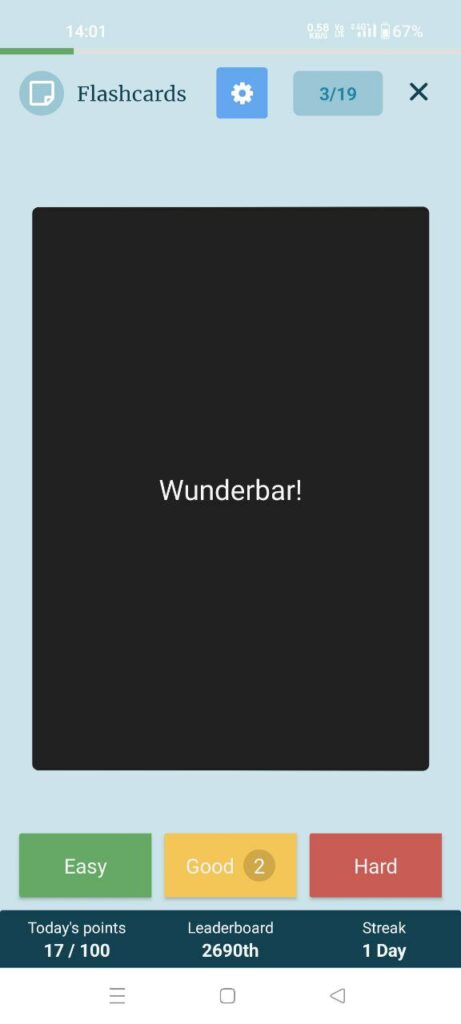
Rocket Languages is ideal for language learners who want deep, immersive instruction and are committed to mastering their language. This platform works well for:
- Serious Learners: Rocket Languages offers a well-rounded approach that includes grammar, vocabulary, pronunciation, and cultural context for those who are committed to acquiring a language and desire an organized, content-rich program.
- People Seeking Cultural Insight: It’s inclusion of cultural background inside classes might be quite alluring if you’re interested in not just learning the language but also understanding its cultural intricacies.
- Those Focused on One Language: If you’re determined to spend all of your time studying only one language, Rocket Languages’ lifetime access option offers an affordable choice for in-depth language training.
- Those Who Prefer Immersion: If you like learning via role-playing, actual dialogues, and circumstances that mirror real-world ones, you’ll like Rocket Languages’ immersive approach.
- Learners Who Value Progress Tracking: The progress tracking features will help you stay motivated and on course if you prefer to monitor your development, establish objectives, and follow a tailored learning plan.
- Language Lovers Willing to Put in the Time: Rocket Languages’ comprehensive lessons and activities can assist you in building excellent language abilities if you have the willingness to put in the effort for lengthier class durations and practice sessions.
Essentially, Rocket Languages serves those who are dedicated to full language proficiency, value cultural insights, and are prepared to put time and effort into their language learning journey. It can be the best option for you if you appreciate a thorough approach and want to learn and utilize a language properly.
Mondly is best for whom & how?

For language learners searching for a convenient, dynamic, and fun language learning experience, Mondly is a great option. This platform works well for:
- Beginners and casual learners: Mondly’s brief and engaging daily lessons provide a reasonable approach to learn whether you’re just beginning your language learning adventure or want to explore many languages without making a significant commitment.
- Busy People: It’s bite-sized lessons are intended to be finished in around 5 minutes. These help you to make regular progress even on hectic days if you have a busy schedule and little time for language study.
- Visual and Interactive Learners: Mondly’s aesthetically attractive design and interactive features will keep you interested and motivated if you learn best via visual aids, interactive activities, and gamification.
- Conversation-Oriented Learners: If your main objective is to develop your conversational abilities, Mondly’s emphasis on real-world discussions and its voice recognition technology might be helpful.
- Language Lovers Seeking Variety: The vast library of 41 languages and the choice of lifetime access provide a varied language learning experience if you’re interested in learning many different languages.
- Tourists & Travelers: If you’re studying a language for a particular area, Mondly’s “Survival Kits” may provide you the vocabulary and phrases you’ll need to get by.
Students that favor a practical, adaptable, and participatory language learning method will benefit most from Mondly. It provides an engaging platform that fits a variety of learning objectives and hectic schedules if you’re seeking for brief, daily courses, gamified features, and a practical emphasis on dialogue.
Rocket Languages User Feedbacks
With its thorough, dynamic, and interesting methodology, Rocket Languages is hailed as the best online language learning program, standing out from rivals like Rosetta Stone or Memrise. Rocket French hosts’ extensive language and cultural explanations stand out.
The use of numerous games not only makes learning fun but also helps students build the reading, writing, speaking, and listening abilities that are essential for understanding French. This thorough technique contrasts with earlier efforts using books, cassettes, or internet resources, when progress and retention were inconsistent.
Another user’s quest to learn German was the focus of their experience with Rocket Languages. Highlighted include the program’s immersion style and focus on thinking in the target language as opposed to translating. The fluency and retention of this strategy seem to improve.
Although the app’s benefits are recognized, a user says there is potential for development, notably in the beginner Mandarin Chinese sections. The need for more participatory and interesting fundamentals, including learning words and building sentences, is voiced. This strategy might possibly speed up learning and make it simpler for users to comprehend and efficiently employ new terms.
Mondly User Feedbacks
Mondly has gained recognition as a very effective tool for encouraging users to speak a language fluently. Three separate competency levels for beginners, intermediates, and expert learners illustrate the app’s systematic approach. The wide variety of practices and feedback methods included in the platform are well-liked by users.
Recently, the enhanced and engaging hands-free capability has been well accepted, adding ease and interest to learning. This opinion displays a long-standing appreciation for the app that has been made even stronger by its new features. As a consequence, the reviewer categorically recommends Mondly as one of the best language learning applications available.
Another user who has been using the software for a long time commends its unique approach to learning. The interactive memory-matching game using word visuals, spellings, and pronunciations is highlighted in the review.
This strategy not only makes learning languages more enjoyable, but it also works well. The app’s immersion choices let users choose their native language, target language, or another language for multilingual practice. This versatility helps explain why users highly prefer Mondly.
The daily lessons come under the spotlight for a different part of the program. They applaud the speakers’ natural tones and their steady pronunciation development over time. However, the study identifies an issue with graphical bugs on a new phone, which can hide crucial lessons. Despite this problem, the consumer expresses optimism and hopes that the graphical discrepancies will be resolved quickly.
These evaluations provide a comprehensive picture of Mondly as a successful and interesting language learning tool. Its multi-level strategy, engaging techniques, and dedication to meeting user demands are continually praised, further establishing its place as a suggested option for language enthusiasts.
Rocket Languages vs Mondly- Summary
Rocket Languages
Total Languages: 13
Starts from: $99
60 Days Money Back Guarantee
What did We like?
For a comprehensive and culturally enriching language learning experience, choose Rocket Languages. For students who are serious about acquiring only one language, Rocket Languages provides a serious approach with its in-depth courses, progress monitoring, and lifetime access. Set individualized objectives while diving deeply into real-world discussions, vocabulary, and grammar. This app promises a satisfying and full language learning experience, making it the ideal choice for people looking for a comprehensive grasp of language and culture.
- Comprehensive Content
- Cultural Insights
- Progress Tracking
- Lifetime Access
- Immersive Approach
- High-Quality Audio
- Survival Kits
- Higher Cost
- Longer Lesson Durations
- Limited Multiple-Language Plans
Mondly
Total Languages: 41
Starts from: $9.99
30 Days Money Back Guarantee
What did We like?
Choose Mondly, an interactive platform for language learning designed for busy students looking for ease and fun sessions. Mondly has a conversational emphasis, short daily sessions, and voice recognition to hasten your path to confident communication. Its gamified methodology, aesthetically pleasing user interface, and large language choices accommodate different learning preferences. Mondly provides an easy and entertaining route to language proficiency, making it perfect for newcomers and those exploring many languages.
- Short, Daily Lessons
- Visual and Interactive
- Speech Recognition Technology
- Conversational Focus
- Gamified Approach
- Wide Language Selection
- Offline Access
- Limited Depth:
- Subscription-Based Model
- Less Immersive
- UI is a little cluttered at start
Yes, Rocket Languages offers courses tailored for learners at various levels, including beginners. The structured lessons and gradual progression make it accessible for those new to the language.
Mondly’s lifetime subscription covers all 41 languages offered by the platform, providing a diverse language learning experience without additional costs.
Rocket Languages integrates cultural insights and real-life scenarios into its lessons, helping learners understand how to use the language within different cultural contexts.
Yes, Mondly’s speech recognition technology provides instant feedback on pronunciation accuracy, assisting learners in refining their spoken language skills.
Both Rocket Languages and Mondly offer mobile apps that allow learners to access lessons, exercises, and materials on smartphones and tablets for convenient on-the-go learning.
Yes, Mondly is a highly regarded language learning app with its interactive lessons, speech recognition technology, and focus on practical communication skills.
The value of Mondly depends on your learning goals and preferences. Its gamified approach, convenience, and wide language selection make it worth considering for those seeking an engaging and accessible language learning experience.
It depends on your learning style and goals. While Mondly offers shorter lessons and gamification, Rocket Languages provides immersive content and cultural insights. Consider which approach aligns better with your preferences.
Rocket Languages offers comprehensive audio lessons that contribute to language proficiency, but fluency depends on factors like practice, immersion, and dedication to consistent learning.
Yes, Rocket Languages is well-regarded for its comprehensive lessons, cultural context integration, and progress tracking features. It’s good for learners seeking in-depth language mastery and understanding.

Meet Bill, a French language teacher and blogger who specializes in testing various language learning apps. He has been teaching French for nearly 4 decades and holds a Bachelor’s degree from Manhattanville College. With a passion for technology and how it can enhance language learning, Bill has spent years testing and reviewing different language learning platforms. His blog provides valuable insights into the pros and cons of each app, as well as tips for language learners of all levels.
